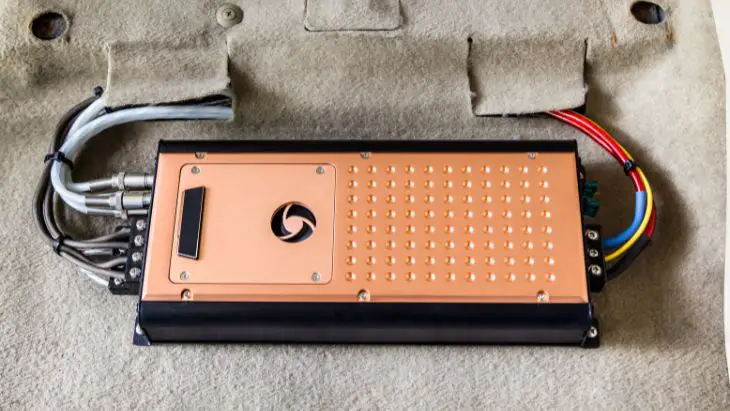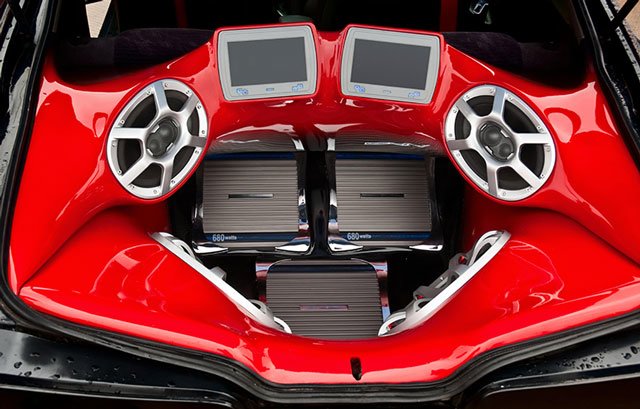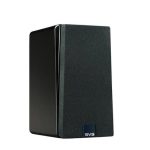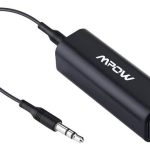Everyone wants the best sound system in their car. Although you may be having a high-quality car receiver, it might not be powerful enough to drive powerful speakers. The sound signal produced by most receivers is usually weak. So how can you power your car speakers with enough power to drive them to their full potential? This is where a car amplifier comes in. Basically, an amplifier is an electronic device that boosts a weak signal to make it stronger. Thus, by connecting an amplifier between your receiver and the car speakers, you’ll get a strong signal to drive even the most powerful car speakers.
So what’s a car amplifier in detail?
In general, an amplifier is a device that takes a weak audio signal from a sound source and processes the signal to strengthen it by amplification, thereby outputting a sound signal with a higher voltage to drive powerful speakers. In the case of car amps, their role is boosting audio signals from the head unit to output a stronger signal to power car speakers and car subwoofers. Car amps are often compact in design to make them ideal to fit in tight car spaces.
Generally, head units produce audio signals that are hardly audible without amplification. Thus, a car amp is very important for a car audio system. Although some replacement head units come with inbuilt amplifiers, they’re still not powerful enough to provide the car speakers with high-quality sound. Head units tend to distort especially when turning the volume up.
How do car amplifiers work?
A car amp uses an inbuilt power supply mechanism that supplies the amp circuit with high voltage. The amp usually has some circuitry sections that take an audio signal from a car stereo. The circuitry sections boost the inputted audio signal and deliver a stronger signal through the output terminals. The most important circuitry sections in a car amp include a switching DC power supply, ground loop circuitry, speaker crossover, and bridging circuitry.
The switching power supply is the most crucial section of an amp. It works as a step-up transformer that takes a lower voltage and multiplies it to output a higher voltage. The power supply comprises a switching integrated circuit that powers transistors on and off repeatedly, thereby producing alternating power cycles. These cycles turn the DC supply to the amp transformer on and off, thereby producing a higher voltage on the output depending on the turns of wire on the transformer.
Another crucial component of an amp is the ground loop circuitry. The role of this circuitry is noise prevention. Ground loop noise is a form of electric noise that originates from the electric current flowing in a car’s body and audio connections. This kind of noise interferes with sound signals, thereby impairing the quality of sound. The ground loop circuitry in an amp eliminates the noise from the sound signal it takes and outputs a cleaner signal for enhanced sound quality.
The crossover in a car amp ensures that the amp outputs low frequency to the subwoofer, mid-frequency to the midrange drivers, and high frequencies to the tweeters. For instance, when you hook up a subwoofer to the dedicated sub output on the amp, it will only get low frequencies since the crossover will filter and block other frequencies and only allow lows to get to the subwoofer. As such, a car amp allows for more clarity.
Benefits of Adding an Amplifier to Your Car

Now that you know what an amplifier is and how it works, let’s look at some of the benefits that come with adding a car amplifier to your car sound system.
1. The make speakers louder
A car experiences a lot of noise. The noise can make it challenging to hear sound from your car music system. The noise mainly comes from the tires, engine noise, road noise, vibrations, and traffic. Most of these noises drown the audio from the music system. So what’s the best solution to this problem? Adding a car amp boosts the sound signals from the car receiver, thereby allowing the speakers to reproduce louder and deeper sounds. As such, the loudness makes it possible for sound to be more audible despite the noise experience in the car cabin.
2. Enhances the quality of sound
Most car receivers distort and crackle at high volume. An amplifier comes in handy to solve this problem by amplifying the sound such that you’ll get louder sound with the best quality when turning the volume up. An amplifier also cleans sound signals to eliminate ground loop noise, thereby outputting cleaner sound. You’ll also get deeper bass and reduced distortion at high volume. As such, an amp is a great device to add to your car music system.
3. To drive powerful car subwoofers
A subwoofer usually demands a lot of power from a receiver. For a subwoofer to deliver clean bass, it needs to be connected to a dedicated output that is specially designed for connecting a subwoofer. However, some receivers don’t have dedicated subwoofer ports. In this case, you can add an amp to drive your sub. Basically, an amp comes with a dedicated sub port that outputs low frequencies for reproduction by a subwoofer.
4. Enhanced flexibility
Most head units are limited in terms of the number of speakers you can add. Luckily, with an amplifier, you can add more speakers and subwoofers depending on the number of output channels on the amp. An amplifier with more channels allows for even more flexibility.
5. Extra features
Most factory head units have limited features and controls for enhancing and controlling sound output. With an amplifier, you’ll enjoy more sound control features such as gain and bass boost. This way, you’ll have more control over your car’s music system without investing in a replacement stereo.
Final Words
If you prefer listening to exceptionally high-quality music in your car, then you should definitely add a car amp. As you can see, adding an amplifier to your car will allow you to listen to loud music without distortion. You’ll also enjoy deeper bass and clear music details. Thus, get an amplifier today for your car to enjoy a major boost in your car music experience.
Michael Evanchuk is a San Francisco-based sound engineer with 20 years’ experience installing, troubleshooting, and repairing commercial, automotive, and household sound equipment. Evanchuk owns an auto stereo center, where he offers highly competitive car audio installation and repair services. He has written dozens of articles on different sound engineering topics, all of which have been published in leading journals, blogs, and websites.





